|
During September, as in all of Ordinary Time (formerly known as Time After Pentecost), the Liturgy does not focus on one particular mystery of Christ, but views the mystery of Christ in all its aspects. We follow the life of Christ through the Gospels, and focus on the teachings and parables of Jesus and what it means for us to be a follower of Christ. During Ordinary Time we can concentrate more on the saints and imitate their holiness as Christ's followers.
0 Comments
August 9, 2013. (Romereports.com) The church of San Francesco a Ripa is the first parish in Rome dedicated to St. Francis of Assisi. It was built in 1231, at the same place where the saint himself stayed, during his trip to Rome.
composed by Saint Giovanni Maria Vianney Cure of Ars.
PRAYER (to be recited every day of the novena) Glorious Virgin and Martyr greatly loved by God, Saint Philomena, I rejoice with you for the power that God has given you for the glory of His name, for the building of His church and to honour the merits of your life and your death. I delight in seeing you so pure, so generous, so faithful to Jesus Christ and to his Gospel, so magnificently rewarded in heaven and on earth, drawn by your example to practise virtue, full of hope because of all the rewards conceded to your merits I propose to imitate you by avoiding sin and obeying God completely. Help me o Great Saint by your powerful intercession. Grant me above all an inviolable purity for ever, an indomitable spirit against all evil, the generosity to deny nothing to deny no sacrifice to God and a love as strong as death for the faith of Jesus Christ for the holy Roman Catholic Church and for the Pope, the Father of all the faithful, Shepherd of shepherds and of sheep, vicar of Jesus Christ throughout the world, to these graces that I now ask for with all the ardour of my soul O Saint Philomena, I add even more graces, which I am confident that through your powerful intersession will be granted me. (State with simplicity, trust and humility that graces that you desire from the Saint) No, the good God for whom you shed your blood and gave your life, the good God who is so lavish with you, and through you of his gifts and favours the good God who loved me so much as to die for me, and who gives himself to me through the Eucharist, no, he will not say no to your prayers to my wishes, he surely feels the need to help us. I fervently hope so; I put all my trust in him and in you. Amen. FIRST DAY Consider that Saint Philomena was a virgin. A virgin in this world… a virgin despite persecution… a virgin until death. What an example! What is the reason of my confusion? What is the remedy? Humiliate yourself often for what has caused you shame, pondering on her virginal purity. Assist at Holy Mass in her honour and pray to one of her statues or pictures. SECOND DAY Consider that Saint Philomena was and remained a virgin… because she repressed the corrupt desired of the flesh…, she retained the modesty of Jesus Christ she avoided the deceiving world and dangerous occasions. Do you imitate here in all these ways? What are the causes of your temptations…of your weaknesses… of your unease…of your downfall? Try to eliminate them. Shun what has harmed you; practice what you have neglected to do in regards to chastity. THIRD DAY Consider that Saint Philomena maintained and increased her love for virginity with prayer, a great source of spiritual life; with the sacraments; the soul is washed with the blood of Christ, and is nourished with his sacred body, divine origin of Christian virginity considering that her members were the members of Jesus Christ and her body was the temple of the holy spirit. Have you not all these means also? What use do you make of them? Double the fervour of your prayers, every now and them repeat to yourself: my members are those of Jesus Christ the temple of the Holy Spirit (Holy mass etc.. as first day) FOURTH DAY Consider that Saint Philomena was a martyr… that she suffered… she suffered a lot… suffered until death, and she showed in these moments of torment and invincible patience…are suffering and patience inseparably connected in you? Do you rarely suffer…suffer very little…never enough to die because of it…where does this weariness come from? Would you not like to make some changes?… in which way would you obtain this? Accept with patience the few discomforts, obstacles and difficulties that it pleases the lord to send you today. Assist at Holy Mass in her honour and pray to one of her statues or pictures. FIFTH DAY Consider that Saint Philomena was a martyr for Jesus Christ …they wanted for take her faith away…they wanted her to transgress her Baptismal vows…induce her to follow the examples of the idolaters and apostate. What does the devil, the world, the flesh and your heart want from you if not the same unfaithfulness? They are offensive to God… is it not vain fear that makes you betray your faith, stops you from fulfilling your duties? My God what disgraceful laxity! Find the necessary courage… Gain the respect of a fellow human being, say to yourself occasionally it is better to be pleasing to God rather than to a Man. Assist at Holy Mass in her honour and pray to one of her statues or pictures. SIXTH DAY Consider that Saint Philomena when she died for Jesus Christ followed this rule made by our Saviour: “if you do not love me more that your father and your mother, even more than you love yourself then you cannot be my disciple.” She did not hesitate… she sacrificed everything, even though blood and nature made themselves heard. In less difficult situations are we worthy of Jesus Christ? If at times when we have to choose between God and Man, Between Grace and Nature, who do we choose? Oh! Let us in the future respect our dignity as children of God and disciples of Jesus Christ. Let us try today to please only god or other beings, always and solely for God. Keep far from confused affections. Assist at Holy Mass in her honour and pray to one of her statues or pictures. SEVENTH DAY Consider that Saint Philomena when she died for Jesus Christ had to tolerate the mockery, the abuse of her persecutors, of her executioners and most of the spectators of her torture. She was very generous very constant, very cheerful when publicly declaring her faith… if the world offered you a similar chalice to drink would you have enough courage to devour the jestings the scorn the most unjust persecutions,.. can he who is honoured by God be dishonoured? Have no fear…follow your path…it will end with the gaining of eternal glory. Do not allow anger into your heart, if something is said abruptly, coarsely, sharply, insultingly etc… Assist at Holy Mass in her honour and pray to one of her statues or pictures. EIGHTH DAY Consider that Saint Philomena by dying for love of Jesus Christ entered eternal life full of joy “yes I am certain” she would say form the bottom of her heart ” that the supreme Judge will give me in exchange for the worldly good that I have sacrificed to his love, the Crown of justice that he had promised me.” She dies…and here she is in the tabernacle of God with the Saints to follow the Lamb… are these the thoughts that I try to have when I have to make a sacrifice? What impression do they make on my soul? To which side do the scales tilt? Ah! The Saints to obtain all would say: let us leave all what will I say? Let us decide on a voluntary sacrifice for today…Let us with pleasure fulfil all our duties etc… Assist at Holy Mass in her honour and pray to one of her statues or pictures. NINTH DAY Consider that Saint Philomena in this unworthy world sacrificed all for Jesus Christ, receiving in return in this world directly from him a hundred fold of what she had renounced to. What power! What Glory! How much grandeur humiliated at her feet, how many pilgrims at all her sanctuaries. How many festivities in her honour. What tributes of veneration are offered to her, what agitated zeal to collect her relics. In this way God fulfilled his promises. Eh! If only we kept our promises to him with such faithfulness! But by taking away his Glory do we not deprive ourselves of many favours and merits in this world and in the next? So courage…be loyal…so that God will be loyal with you. Today perform and act of mercy in honour of the Saint. Prepare yourself with a good confession to receive Our Lord Jesus Christ worthily. Assist at Holy Mass in her honour and pray to one of her statues or pictures. PRAYER Oh God among the miracles of your power you also donated to the weaker sex the victory of martyrdom help us who celebrate the birth of the blessed Philomena your virgin and martyr with her examples to you we come. Through Christ Our Lord Amen 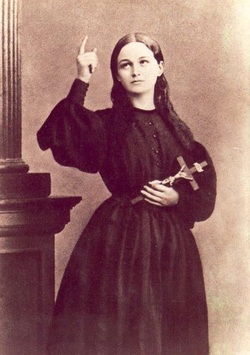 Clelia Barbieri was born to Giacinta Nannetti and Giuseppe Barbieri, on February 13th, 1847 in a village called "Budrie" of S. Giovanni in Persiceto in the outskirts of Bologna, Italy and in the Archdiocese of Bologna. Her parents were of different origins: Giuseppe Barbieri came from perhaps the poorest family of "Budrie" while Giacinta from the most important family in town: he worked as servant for Giacinta's uncle, the district's medical doctor, while she was the daughter of the well-to-do Pietro Nannetti. After her much-contested wedding, the wealthy Giacinta accepted the poverty of a laborer's life and moved from a comfortable home to the humble cottage of her father-in-law, Sante Barbieri; nevertheless forming a family built on the rock of faith and a totally Christian life. In line with her mother's expressed wish, she was baptized Clelia, Rachele, Maria on the very day of her birth. The mother taught Clelia to love God early in her life placing in her heart the desire for sanctity. One day Clelia asked her, "Mother, how can I become a saint?" In the meantime Clelia also learned the art of sewing, spinning and weaving kemp which was the most important work of the district. In 1855, during a cholera epidemic the then eight-year-old Clelia lost her father and through the generosity of her uncle, the doctor, she, her mother and younger sister Ernestina moved into a more comfortable house near the parish church. For Clelia the days became more saintly and dedicated. Anyone who wanted to see her could always find her either at home weaving and sewing or in church praying. Although it was usual at that time to receive First Communion almost at adulthood, Clelia due to her unusual catechistic preparation and spirituality, made hers on June 17th, 1858, at only eleven years of age. This was a decisive day for Clelia's future since it was then that she had her first mystic experience: exceptional contrition and repentance for her own sins and those of the world. She underwent anguish and suffering for the sins that crucified Christ and so sorrowed Our Lady. From the day of her First Communion, the crucifix and Our Lady of Sorrows inspired her saintly soul. At the same time she had a first inspiration as to her future which she perceived as based on prayer and good works. In adoration before the Holy Tabernacle she was motionless, rapt in prayer, while at home she was the companion and model for the other working girls. Far more mature than her years, she found in her work the first contact with the girls of "Budrie" where working hemp fibers was the main occupation and where all were engaged in this hard work. Clelia brought something particularly personal to her little world: she worked with joy and love, praying and thinking of God at all times and even speaking of Him to her companions. While Clelia was not Martha, Completely devoted to the cares of the world, yet she dedicated herself lovingly to the service of those most loved by Our Lord, the very poor, to the extent that her delicate hands were marked early in her short life with the hard labors she undertook. While Clelia was not Mary who abandoned, excluded and neglected everything to prostrate herself in love and devotion, yet Clelia had no other thought, no other love than that for Our Lord whom she carried in her heart and soul as she walked with Him through life as if already in his world. She lived in charity, completely dedicated to loving her fellowmen without restraint. She forgot and even ignored her body. She was happy to belong to the Lord and her happiness rested, in fact, in thinking only of Him. Something, however, compelled her to turn towards her fellowmen, the poorest and most tried, who often waited in vain for some small sign of love and brotherhood. A fervent faith burned inside her, and she felt that she "must go" to give herself to all of God's poor. She loved that solitude which would permit her to reach God more fully, but she left the protection of her home and went forth inspired by her all-consuming love for mankind. At this time in history, there existed in the Church a group called "The Christian Catechism Workers" who were mainly men whose aim it was to combat the prevalent religious negligence of the times. At "Budrie" the group was led by an elderly schoolteacher. Clelia aspired and then became one of the Christian Catechism Workers. Then, at "Budrie" with her acceptance, the catechism group was reborn and attracted others with her very same dedication and faith. At first, Clelia was admitted as an assistant teacher and was the least important member, but soon her surprising talents and preparation evidenced themselves so that the senior members placed themselves under her leadership. Having rejected several flattering marriage proposals, the group of young ladies which had sprung up from the Catechism group, elected Clelia as their leader and conceived the idea of a community devoted to an apostolic and contemplative way of life. This was to be a life of service which would spring from the Eucharist with daily Holy Communion and would ennoble itself with the teaching of catechism to the farmers and laborers of the area. The idea could not become a reality immediately due to the political situation at the time of Italy's unification (1866-67). However, it was finally realized on May 1st, 1868 when with the bureaucratic and local problems solved, Clelia and her young friends moved into the so-called "teacher's house" where the Workers for Christian Catechism had formerly met. This was the humble beginning of Clelia Barbieri's religious family which later was to be named the religious community of the "Suore Minime dell'Addolorata". "Minime" because of Clelia's devotion to the saint, Minimo Romito di Paola, S. Francesco, patron and provident protector of the young community; "dell'Addolorata" because this title of Our Lady of Sorrows was the most loved of all of Our Lady's titles by Clelia Barbieri. After moving into "the teacher's house", a series of extraordinary events in the form of assistance to the young community occurred which were undoubtedly the work of Divine Providence and without which the group could never have survived. The small group was inspired by Clelia's physical and moral sufferings in her darkest hours and in the absurd humiliations she endured at the hands of those who should have been more understanding. However, her faith and devotion in prayer were always extraordinary. In the small "Budrie" community there was faith, a desire for God and a missionary zeal full of creativity and imagination by no means based on any organization support which was virtually nonexistent. Clelia was the moving spirit. The small initial group grew as well as the number of poor, sick and young boys and girls needing catechism and religious instruction. Slowly, the people began to see Clelia as a leader and teacher of the faith. They started calling her "Mother" although she was only twenty-two years old. They called her with this title until her death which came about very shortly. The dormant tuberculosis she had always carried, suddenly flared up only two years after she had founded the order. Clelia died prophesizing to the sister at her bedside, "I'm leaving, but I'll never abandon you. When in that alfalfa field next to the church there will be a new community house, I will no longer be with you ... You will grow in number, and you will expand over plains and mountains to work in the vineyard of the Lord. The day will come when here at 'Budrie' many will arrive with carriages and horses ...". And she added, "I'm going to Heaven and all those who will die in our community will enjoy eternal life". She died on July 13th, 1870 with the happiness of one going to meet her Spouse and beloved Lord. Clelia's death prophecy has been fulfilled. The religious order Suore Minime dell'Addolorata has expanded and continues to grow. It extends throughout Italy, in India and in Tanzania. Today, the sisters following in Clelia's footsteps, humbly continue their useful work of assistance to all in need and now number three hundred spread over thirty-five community houses. Being only twenty-three at the time of her death, Clelia Barbieri is the youngest founder of a religious community in the history of the Church. Taken from the Vatican 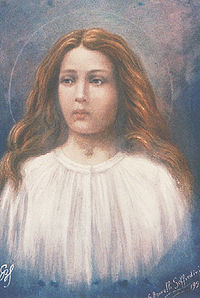 by James Likoudis Mr. Likoudis is the former President of Catholics United for the Faith. In many of his addresses, Pope John Paul II has noted that the 20th century has been perhaps the bloodiest and most murderous century in the history of mankind, giving the Church the most martyrs in her 2,000-year history. It should be a matter of profound reflection that the 20th century may be said to have begun with the martyrdom in 1902 of a young girl, Maria Goretti–not yet 12 years of age–who did not hesitate to give her life for the virtues of virginity and chastity so cherished by the Catholic Church. In a beautiful homily commemorating the 100th anniversary of the birth of St. Maria Goretti, Pope John Paul II quoted St. Paul: "God chose what is foolish in the world to shame the wise, God chose what is weak in the world to shame the strong, God chose what is low and despised in the world, even things that are not, to bring to nothing things that are, so that no human being might boast in the presence of God" (1 Cor. 1:27-29). The Successor of Peter continued: Yes, God chose her. Yes, God has clothed her with honor. He chose and clothed her with honor a simple little country girl who was born poor. He clothed her with honor by the power of His Spirit. "The natural person does not accept what pertains to the spirit of God–he does not accept because "he cannont understand it"; rather, "to him it is foolishness" (1 Cor. 2:14). On the contrary, Maria Goretti understood. She was able to "accept what pertains to the Spirit of God." She did not flee from the Spirit’s voice, from the voice of her conscience. She did not give in. She rather chose death. Through the gift of fortitude, the Holy Spirit helped her to ‘judge’–and to choose with her young spirit. She chose death when there was no other way to defend her virginal purity. . . . Now Maria Goretti is forever in the glory prepared by God for the martyrs, already prepared in past ages, at the time of the Roman persecutions, by Agnes, Lucy, Agatha, Cecelia, and so many others. At the beginning of our century, this glory touched her, too. We thank the Blessed Trinity for this young life and for the martyrdom which crowned it. Through her life and heroic death, the Son of Man was glorified at the beginning of our century. The life and example of this young virgin-martyr can teach us much concerning the truth that every young person can attain a high degree of holiness, as we have seen with two more recent blesseds, Jacinta and Francisco Marto, to whom Our Lady of Fatima appeared in 1917. They were but nine and ten years old. St. Dominic Savio, who was the student of St. John Bosco, was only 15. St. Dominic Savio’s motto "death rather than sin!" was to be actually realized in the bloody martyrdom of St. Maria Goretti, who suffered 14 stab wounds from her 19-year-old attacker, Alessandro Serenelli, inflamed with lust. Her reply to previous overtures to commit sins of impurity had always been "No!" A young peasant girl who could not read or write, Maria remained fully conscious of the instructions she had received for her First Communion: "When we commit sin, we renew the Passion of Christ." During the evening of that First Communion, when a special family celebration was held, her mother Assunta had told her, "My darling, today Jesus has claimed you as His. Never offend him, ever." On that fatal day, July 5, 1902, when confronted by Alessandro, the young girl had repeatedly cried out to her assailant, "No! E peccato! Dio non lo vuole!" "No! It is a sin! God forbids it! You will go to hell!" On her deathbed a day later, in her agony, she forgave her murderer. In answer to the priest who asked her: "Maria, Jesus died while forgiving the penitent thief at His side. Do you forgive with all your heart your attacker and murderer?" "Yes! Yes!" she replied, "For the love of Jesus, I forgive him, and I want him to be with me one day in heaven!" The conversion of the morose, hardened, and embittered Alessandro a few years later was to prove one of the young saint’s greatest miracles. Alessandro’s own account reveals how on October 10, 1910, as he lay on his prison bunk, Maria Goretti appeared to him in a dream, dressed in dazzling light and handing him white lilies which turned into flames in his arms. His striking conversion was accompanied by an admission of guilt and of his victim’s innocence and virtue. A once unrepented murderer would now accept his continued imprisonment lasting 18 more years as the occasion for expiating his crime. He would be often heard saying, "I hope for salvation, since I have a saint in heaven praying for me." Our age needs heroic role models for youth who are caught in a destructive "culture war" in which no values are considered worthy of belief or commitment. Catholics have been warned about the powerful intellectual currents threatening all Christian values involving the dignity of the human person, and especially the dignity of women. The Roman Pontiffs from St. Pius X at the turn of the century to Pope John Paul II have repeatedly insisted on the need to uphold the dignity of the human person in the face of attacks against Christian sexual morality. Patrick Mitchell, addressing the ideological tampering with gender that has become endemic in our time, has written: In the last century, the western world has turned a corner and entered an era appropriately called "post-Christian." Whole nations have abandoned the Christian faith in favor of no religion at all. Where faith has survived, it has been pruned of its inconvenient aspects. This is most true of Christian teaching on the sexes. The Christian mystery of the man and the woman, handed down from the apostles and preserved entire by the saints of every age, has become a scandal to modern man, a stumbling block that causes the weak in faith to falter. Just as the divinity of the crucified Christ was too much for the ancient Greeks to believe, so the humanity of the fallen Eve is too much for many modern men and women to accept. Centuries of Christian teaching on the relationship between the sexes have been abandoned and forgotten. The harmful effects of "women’s liberation" and now "children’s liberation" from family and Church have yet to be grasped. Radical feminist ideology with its revolutionary notions of sexual equality and freedom directly conflicts with Christian teaching and even distorts our understanding of God. Such ideology is not that of the saints and blesseds of the Church, who understood the necessity of chastity for self-mastery and self-discipline. The virtue of chastity lived in every state of life (single, married, priesthood, and consecrated religious) enables the person to live by the Holy Spirit. Our Lord Jesus Christ loved the virtue of holy purity, and the saints safeguarded this virtue in order to be pleasing to God. St. Maria Goretti knew the importance of chastity for union with God and its necessity for the wholesomeness of both personal and social life. She knew instinctively as a child of God what St. Paul taught: "For this is the will of God, your sanctification . . . that each one of you know how to control his own body in holiness and honor, not in the passion of lust like heathen who do not know God" (1 Thess. 4:3-5). She had grasped in the depth of her soul the lessons of the Catechism as taught by her parents and her village priest–that Christians belong to God totally, body and soul, flesh and bones, with all their senses and faculties. She knew that she was "God’s temple" and that sins of impurity defiled that temple and endangered one’s salvation. She was aware of the beauty of sacramental marriage (she doubtless expected to marry some day and have a family), but she also knew priests and women religious who had freely chosen celibacy and virginity for the sake of the kingdom of God. In every age, the saints of God have proven that they were God’s servants by their lives of faith and purity of soul. In St. Maria Goretti, youth have a heavenly patroness who, in Pope John Paul’s words, is "a model of Christian life," "a model of authentic holiness," and "the Agnes of the 20th century." Not yet 12 years of age, she was a countercultural sign to a world in the process of rejecting God and genuine love. She continues to radiate the light of Christ amidst the decadence and impurities of the modern world, remaining an inspiration to both parents and youth to live the Christian life and, if necessary, to suffer martyrdom in defense of Catholic morality. CUF president emeritus Jim Likoudis writes from Montour Falls, NY. This article was originally published in Lay Witness magazine, July/August 2002. Peter (d. 64?). St. Mark ends the first half of his Gospel with a triumphant climax. He has recorded doubt, misunderstanding and the opposition of many to Jesus. Now Peter makes his great confession of faith: "You are the Messiah" (Mark 8:29b). It was one of the many glorious moments in Peter's life, beginning with the day he was called from his nets along the Sea of Galilee to become a fisher of men for Jesus. The New Testament clearly shows Peter as the leader of the apostles, chosen by Jesus to have a special relationship with him. With James and John he was privileged to witness the Transfiguration, the raising of a dead child to life and the agony in Gethsemane. His mother-in-law was cured by Jesus. He was sent with John to prepare for the last Passover before Jesus' death. His name is first on every list of apostles.
And to Peter only did Jesus say, "Blessed are you, Simon son of Jonah. For flesh and blood has not revealed this to you, but my heavenly Father. And so I say to you, you are Peter, and upon this rock I will build my church, and the gates of the netherworld shall not prevail against it. I will give you the keys to the kingdom of heaven. Whatever you bind on earth shall be bound in heaven; and whatever you loose on earth shall be loosed in heaven" (Matthew 16:17b-19). But the Gospels prove their own trustworthiness by the unflattering details they include about Peter. He clearly had no public relations person. It is a great comfort for ordinary mortals to know that Peter also has his human weakness, even in the presence of Jesus. He generously gave up all things, yet he can ask in childish self-regard, "What are we going to get for all this?" (see Matthew 19:27). He receives the full force of Christ's anger when he objects to the idea of a suffering Messiah: "Get behind me, Satan! You are an obstacle to me. You are thinking not as God does, but as human beings do" (Matthew 16:23b). Peter is willing to accept Jesus' doctrine of forgiveness, but suggests a limit of seven times. He walks on the water in faith, but sinks in doubt. He refuses to let Jesus wash his feet, then wants his whole body cleansed. He swears at the Last Supper that he will never deny Jesus, and then swears to a servant maid that he has never known the man. He loyally resists the first attempt to arrest Jesus by cutting off Malchus's ear, but in the end he runs away with the others. In the depth of his sorrow, Jesus looks on him and forgives him, and he goes out and sheds bitter tears. The Risen Jesus told Peter to feed his lambs and his sheep (John 21:15-17). Paul (d. 64?). If the most well-known preacher today suddenly began preaching that the United States should adopt Marxism and not rely on the Constitution, the angry reaction would help us understand Paul's life when he started preaching that Christ alone can save us. He had been the most Pharisaic of Pharisees, the most legalistic of Mosaic lawyers. Now he suddenly appears to other Jews as a heretical welcomer of Gentiles, a traitor and apostate. Paul's central conviction was simple and absolute: Only God can save humanity. No human effort—even the most scrupulous observance of law—can create a human good which we can bring to God as reparation for sin and payment for grace. To be saved from itself, from sin, from the devil and from death, humanity must open itself completely to the saving power of Jesus. Paul never lost his love for his Jewish family, though he carried on a lifelong debate with them about the uselessness of the Law without Christ. He reminded the Gentiles that they were grafted on the parent stock of the Jews, who were still God's chosen people, the children of the promise. In light of his preaching and teaching skills, Paul's name has surfaced (among others) as a possible patron of the Internet. (to be prayed for 9 consecutives days)
O wonderful St. Anthony, glorious on account of the fame of your miracles, and through the condescension of Jesus in coming in the form of a little child to rest in your arms, obtain for me of His bounty the grace which I ardently desire from the depths of my heart . (State your intention) You who were so compassionate toward miserable sinners, regard not the unworthiness of those who pray to you, but the glory of God that it may once again be magnified by the granting of the particular request (State your intention) which I now ask for with persevering earnestness. Amen Pray 1 Our Father, 1 Hail Mary, and 1 Glory Be to the Father, in honor of Saint Anthony. Saint Anthony, pray for us! CONCLUDING PRAYER May the divine assistance remain always with us. AmenMay the souls of the faithful departed, through the mercy of God, rest in peace. Amen.O God, may the votive commemoration of blessed Anthony, Your confessor, be a source of joy to Your Church, that she may always be fortified with spiritual assistance, and deserve to enjoy eternal rewards. Through Christ our Lord. Amen DAY ONE O holy St. Anthony, gentlest of Saints, thy love for God and charity for His creatures made thee worthy while on earth to possess miraculous powers. Miracles waited thy word, which thou wert ever ready to speak for those in trouble or anxiety. Encouraged by this thought, I implore thee to obtain for me the favor I seek in this novena . . .The answer to my prayer may require a miracle; even so, thou are the Saint of miracles. O gentle and loving Saint Anthony, whose heart was ever full of human sympathy, whisper my petition into the ears of the Infant Jesus, Who loved to be folded in thy arms, and the gratitude of my heart will always be thine. One Our Father, One Hail Mary, and Glory Be to the Father, in honor of Saint Anthony. Saint Anthony, pray for us! Pray the Concluding Prayer DAY TWO O miracle-working St. Anthony, remember that it never has been heard that thou didst not leave without help or relief anyone who in his need had recourse to thee. Animated now with the most lively confidence, even with full conviction of not being refused, I fly for refuge to thee, O most favored friend of the Infant Jesus. O eloquent preacher of the Divine mercy, despise not my supplications but, bringing them before the throne of God, strengthen them by thine intercession and obtain for me the favor I seek in this novena . . . . One Our Father, One Hail Mary, and Glory Be to the Father, in honor of Saint Anthony. Saint Anthony, pray for us! Pray the Concluding Prayer DAY THREE O purest St. Anthony, who through thine Angelic virtue was made worthy to be caressed by the Divine Child Jesus, to hold Him in thy arms and press Him to thy heart. I entreat thee to cast a benevolent glance upon me. O glorious St. Anthony, born under the protection of Mary Immaculate, on the Feast of her Assumption into Heaven, and consecrated to her and now so powerful an intercessor in Heaven, I beseech thee to obtain for me the favor I ask in this novena . . . . O great wonder-worker, intercede for me that God may grant my request. One Our Father, One Hail Mary, and Glory Be to the Father, in honor of Saint Anthony. Saint Anthony, pray for us! Pray the Concluding Prayer DAY FOUR I salute and honor thee, O powerful helper, St. Anthony. The Christian world confidently turns to thee and experiences thy tender compassion and powerful assistance in so many necessities and sufferings that I am encouraged in my need to seek thy help in obtaining a favorable answer to my request for the favor I seek in this novena . . . . O holy St. Anthony, I beseech thee, obtain for me the grace that I desire. One Our Father, One Hail Mary, and Glory Be to the Father, in honor of Saint Anthony. Saint Anthony, pray for us! Pray the Concluding Prayer DAY FIVE I salute thee, St. Anthony, lily of purity, ornament and glory of Christianity. I salute thee, great Saint, cherub of wisdom and seraph of Divine love. I rejoice at the favors our Lord has so liberally bestowed upon thee. In humility and confidence I entreat thee to help me, for I know that God has given thee charity and pity, as well as power. I ask thee by the love thou didst feel toward the Infant Jesus as thou heldest Him in thine arms to tell Him now of the favor I seek through thine intercession in this novena . . . . One Our Father, One Hail Mary, and Glory Be to the Father, in honor of Saint Anthony. Saint Anthony, pray for us! Pray the Concluding Prayer DAY SIX O glorious St. Anthony, chosen by God to preach His Word, thou didst receive from Him the gift of tongues and the power of working the most extraordinary miracles. O good St. Anthony, pray that I may fulfill the will of God in all things so that I may love Him, with thee, for all eternity. O kind St. Anthony, I beseech thee, obtain for me the grace that I desire, the favor I seek in this novena . . . . One Our Father, One Hail Mary, and Glory Be to the Father, in honor of Saint Anthony. Saint Anthony, pray for us! Pray the Concluding Prayer DAY SEVEN O renowned champion of the faith of Christ, most holy St. Anthony, glorious for thy many miracles, obtain for me from the bounty of my Lord and God the grace which I ardently seek in this novena . . . . O holy St. Anthony, ever attentive to those who invoke thee, grant me that aid of thy powerful intercession. One Our Father, One Hail Mary, and Glory Be to the Father, in honor of Saint Anthony. Saint Anthony, pray for us! Pray the Concluding Prayer DAY EIGHT O holy St. Anthony, thou hast shown thyself so powerful in thine intercession, so tender and so compassionate towards those who honor thee and invoke thee in suffering and distress. I beseech thee most humbly and earnestly to take me under thy protection in my present necessities and to obtain for me the favor I desire . . . . Recommend my request to the merciful Queen of Heaven, that she may plead my cause with thee before the throne of her Divine Son. One Our Father, One Hail Mary, and Glory Be to the Father, in honor of Saint Anthony. Saint Anthony, pray for us! Pray the Concluding Prayer DAY NINE Saint Anthony, servant of Mary, glory of the Church, pray for our Holy Father, our bishops, our priests, our Religious Orders, that, through their pious zeal and apostolic labors, all may be united in faith and give greater glory to God. St. Anthony, helper of all who invoke thee, pray for me and intercede for me before the throne of Almighty God that I be granted the favor I so earnestly seek in this novena . . . . One Our Father, One Hail Mary, and Glory Be to the Father, in honor of Saint Anthony. Saint Anthony, pray for us! Pray the Concluding Prayer The relics of the body of St. Pio of Pietrelcina will be permanently exhibited for veneration beginning on June 1. The prefect of the Congregation for the Causes of Saints, Cardinal Angelo Amato, will preside at the celebration of the Eucharist to begin the exhibition, which will take place on 11 a.m. on June 1, at the church of St. Pio of Pietrelcina. All those who work with him in the dicastery will join him in pilgrimage to San Giovanni Rotondo to venerate the remains of the saint. Concelebrating with the Cardinal will be Very Rev. Michele Castoro, Archbishop of Manfredonia-Vieste-San Giovanni Rotondo, Very Rev. Marcello Bartolucci, Secretary of the Congregation for the Causes of Saints, and many priests, both Capuchins and diocesan. The body of St. Pio of Pietrelcina will remain in the same place, namely in the center of the lower church dedicated to the saint, in a glass reliquary. This decision was made after many phone calls, emails, letters, and the continuous requests of the pilgrims who come to San Giovanni Rotonodo, in which they express the desire to be able to pray once again before the relics of the revered Capuchin. The friars and the Archbishop have seen fit to carry out this initiative precisely in this Year of Faith, certain that it will renew the spiritual benefits that came from the last exhibition (April 24, 2008 - September 24, 2009), and, in particular, to awaken faith in the hearts of the many pilgrims, a virtue of which Padre Pio was and continues to be an exemplary witness in his writings, with his spirituality, and, above all, with the constancy of his life. Press office of the Friars Minor Capuchin of the Province of ‘Sant'Angelo e Padre Pio' (Foggia, Italy) As we end this month, we would like to thank Most especially The Almighty God for the success of our activities once again this month. We Hope that Our Lord will continue to guide all our activities and bless all our efforts for the Greater glory of his Name. Also, we would like to thank the Family Rosary Crusade for donating some of their rosaries to us for our on-going mission. It will really help us for our block rosaries in different poor Barangays. Let's once again remember the events that Happened recently namely: The May Crowning with Catechesis, Veneration of the Relic of 5 Passionist Saints, St. Arcangelo Tadini and St. Rita of Cascia, and the Block Rosary at Brgy. Baybay. For more photos please visit our official Facebook fanpage http://www.facebook.com/ajpmclm
Ad Majorem Dei Gloriam! 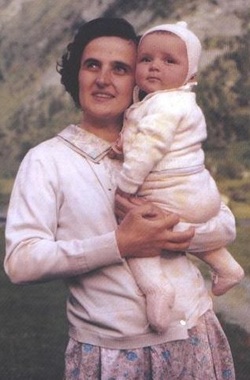 Gianna Beretta was born in Magenta (Milan) October 4, 1922. Already as a youth she willingly accepted the gift of faith and the clearly Christian education that she received from her excellent parents. As a result, she experienced life as a marvellous gift from God, had a strong faith in Providence and was convinced of the necessity and effectiveness of prayer. She diligently dedicated herself to studies during the years of her secondary and university education, while, at the same time, applying her faith through generous apostolic service among the youth of Catholic Action and charitable work among the elderly and needy as a member of the St. Vincent de Paul Society. After earning degrees in Medicine and Surgery from the University of Pavia in 1949, she opened a medical clinic in Mesero (near Magenta) in 1950. She specialized in Pediatrics at the University of Milan in 1952 and there after gave special attention to mothers, babies, the elderly and poor. While working in the field of medicine-which she considered a “mission” and practiced as such-she increased her generous service to Catholic Action, especially among the “very young” and, at the same time, expressed her joie de vivre and love of creation through skiing and mountaineering. Through her prayers and those of others, she reflected upon her vocation, which she also considered a gift from God. Having chosen the vocation of marriage, she embraced it with complete enthusiasm and wholly dedicated herself “to forming a truly Christian family”. She became engaged to Pietro Molla and was radiant with joy and happiness during the time of their engagement, for which she thanked and praised the Lord. They were married on September 24, 1955, in the Basilica of St. Martin in Magenta, and she became a happy wife. In November 1956, to her great joy, she became the mother of Pierluigi, in December 1957 of Mariolina; in July 1959 of Laura. With simplicity and equilibrium she harmonized the demands of mother, wife, doctor and her passion for life. In September 1961 towards the end of the second month of pregnancy, she was touched by suffering and the mystery of pain; she had developed a fibroma in her uterus. Before the required surgical operation, and conscious of the risk that her continued pregnancy brought, she pleaded with the surgeon to save the life of the child she was carrying, and entrusted herself to prayer and Providence. The life was saved, for which she thanked the Lord. She spent the seven months remaining until the birth of the child in incomparable strength of spirit and unrelenting dedication to her tasks as mother and doctor. She worried that the baby in her womb might be born in pain, and she asked God to prevent that. A few days before the child was due, although trusting as always in Providence, she was ready to give her life in order to save that of her child: “If you must decided between me and the child, do not hesitate: choose the child - I insist on it. Save him”. On the morning of April 21, 1962, Gianna Emanuela was born. Despite all efforts and treatments to save both of them, on the morning of April 28, amid unspeakable pain and after repeated exclamations of “Jesus, I love you. Jesus, I love you», the mother died. She was 39 years old. Her funeral was an occasion of profound grief, faith and prayer. The Servant of God lies in the cemetery of Mesero (4 km from Magenta). “Conscious immolation», was the phrase used by Pope Paul VI to define the act of Blessed Gianna, remembering her at the Sunday Angelus of September 23, 1973, as: “A young mother from the diocese of Milan, who, to give life to her daughter, sacrificed her own, with conscious immolation”. The Holy Father in these words clearly refers to Christ on Calvary and in the Eucharist. Gianna was beatified by Pope John Paul II on April 24, 1994, during the international Year of the Family. Taken from http://www.vatican.va/news_services/liturgy/saints/ns_lit_doc_20040516_beretta-molla_en.html |
Archives
May 2016
Categories
All
|

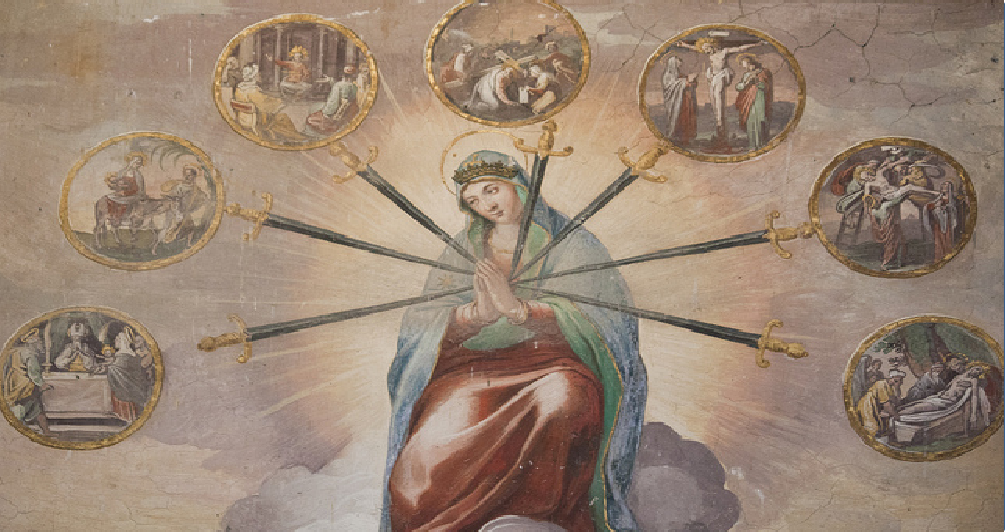

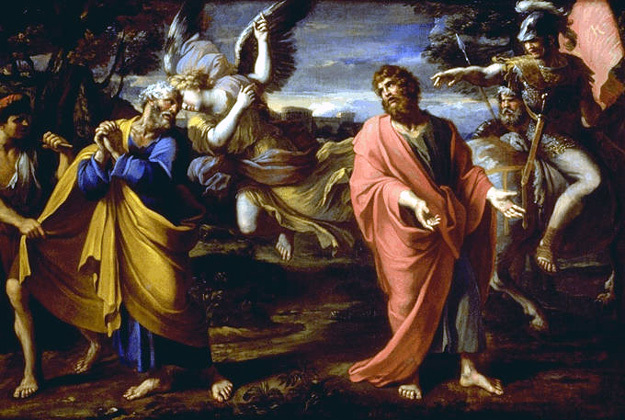
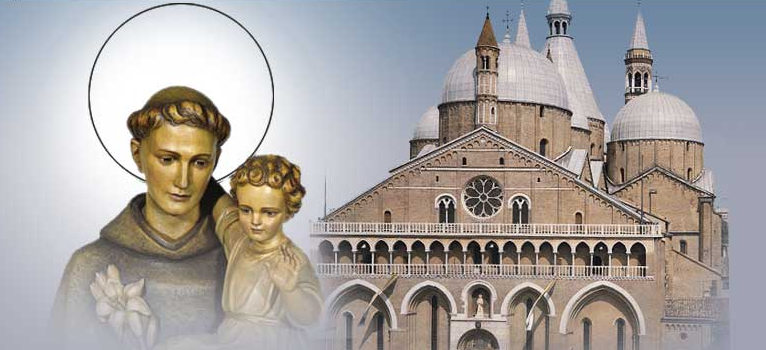
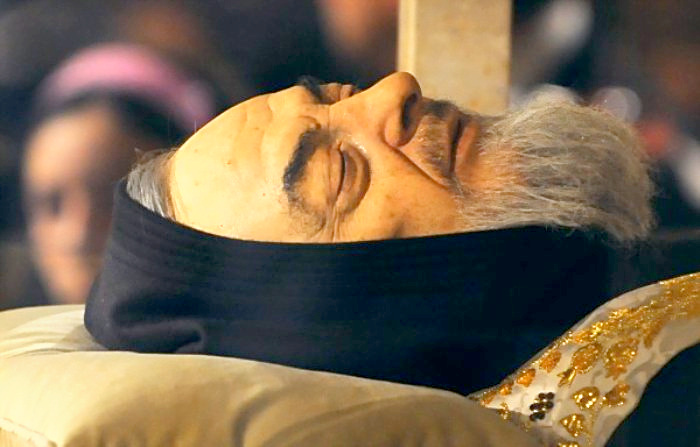
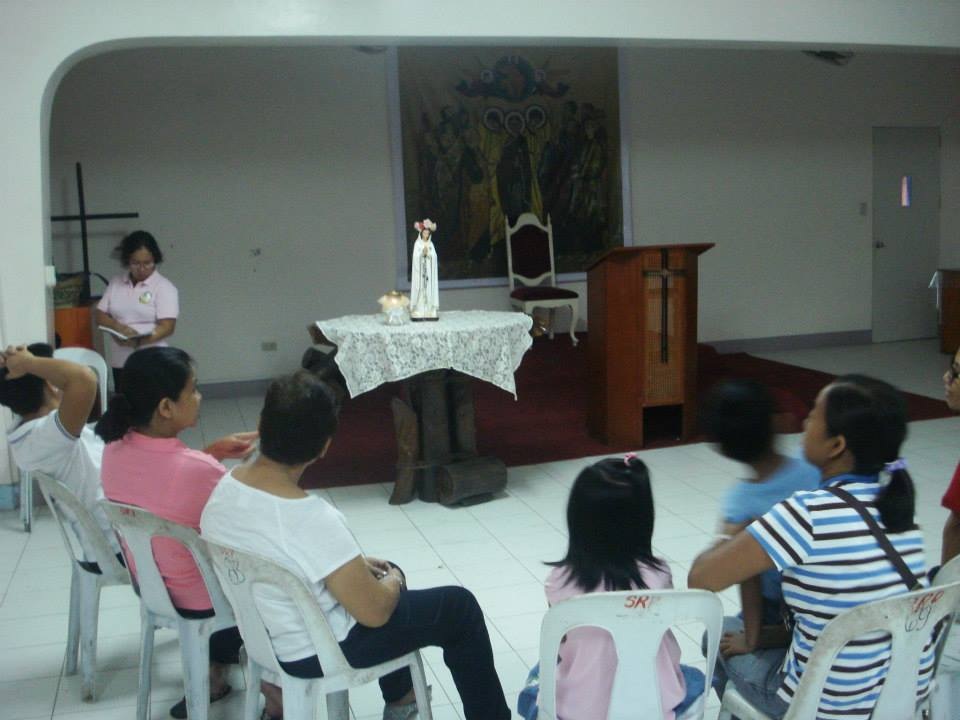
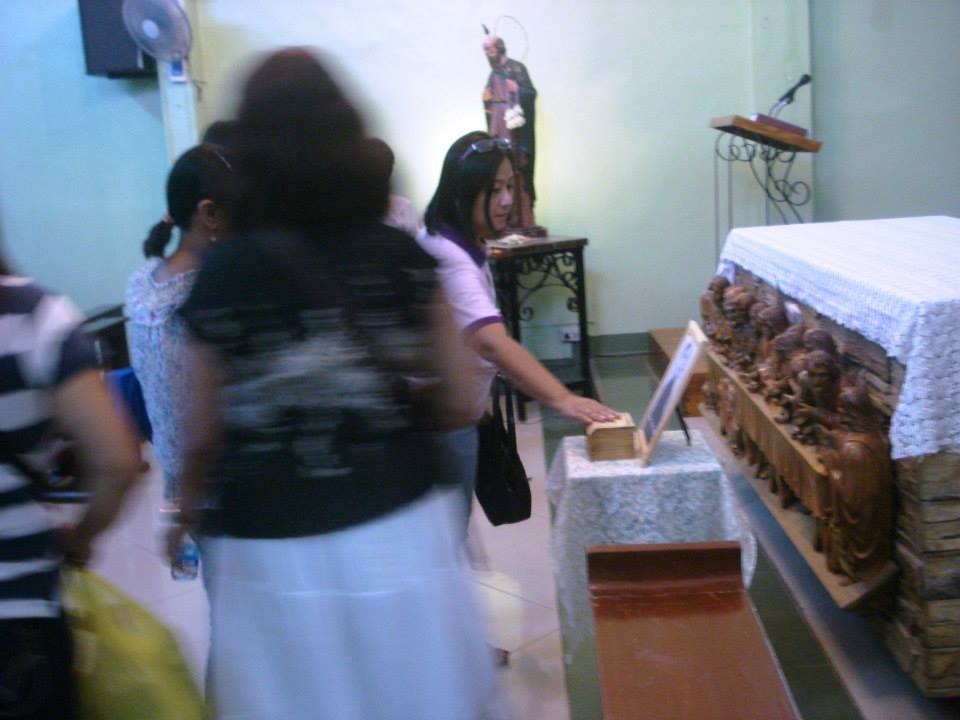
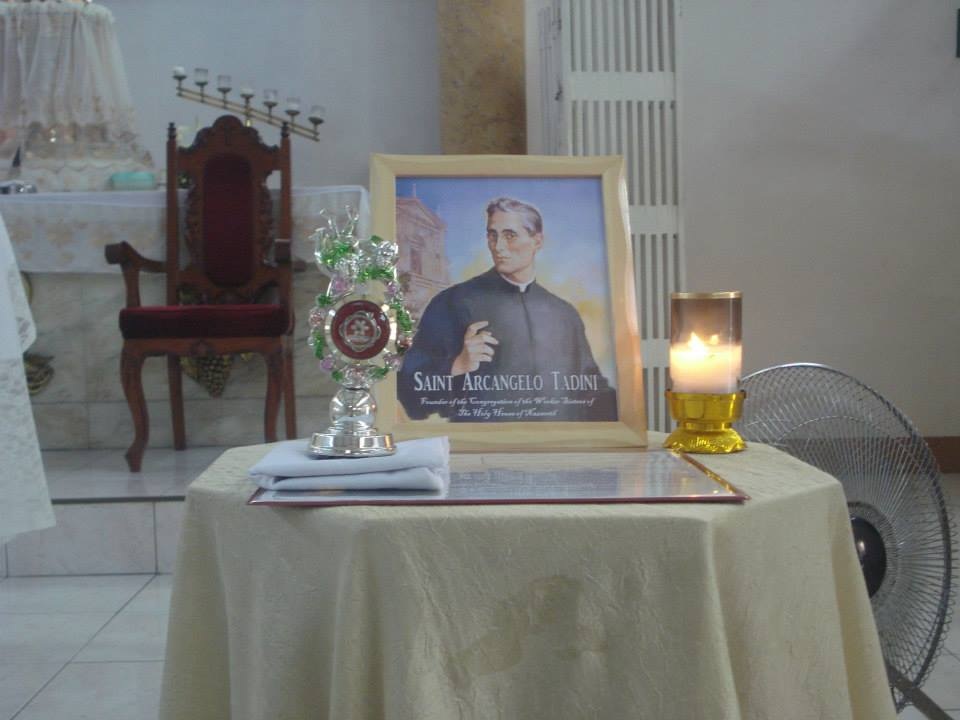
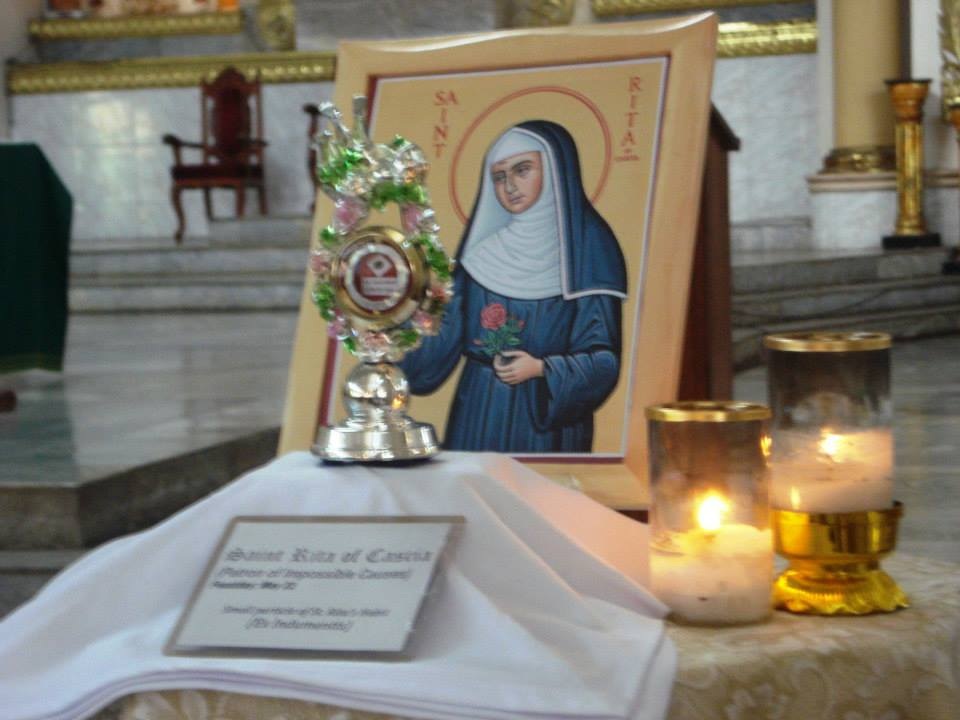
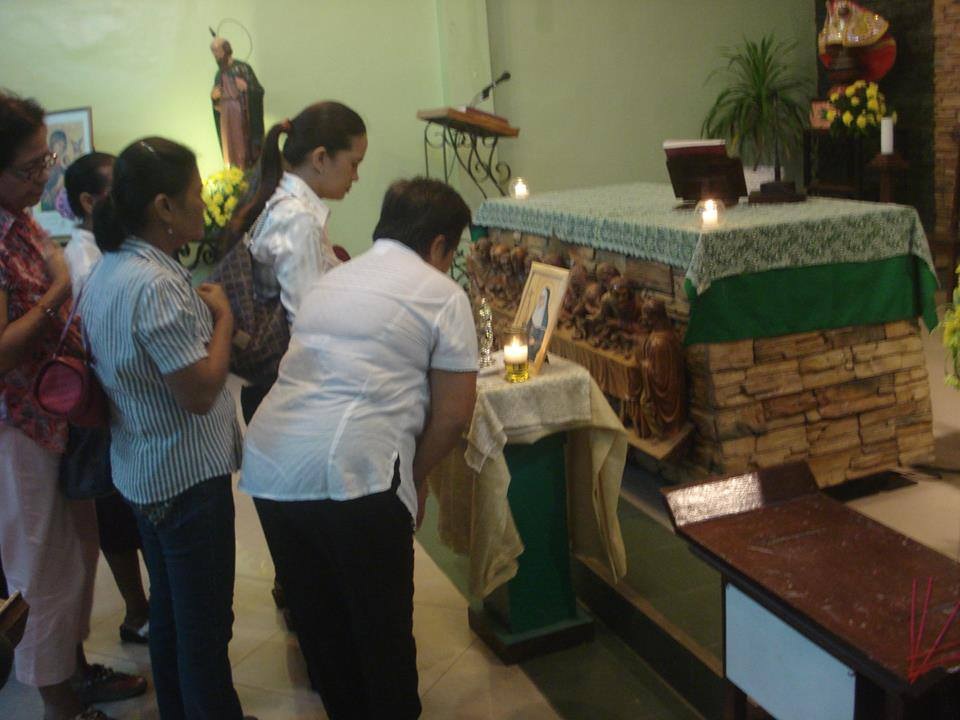
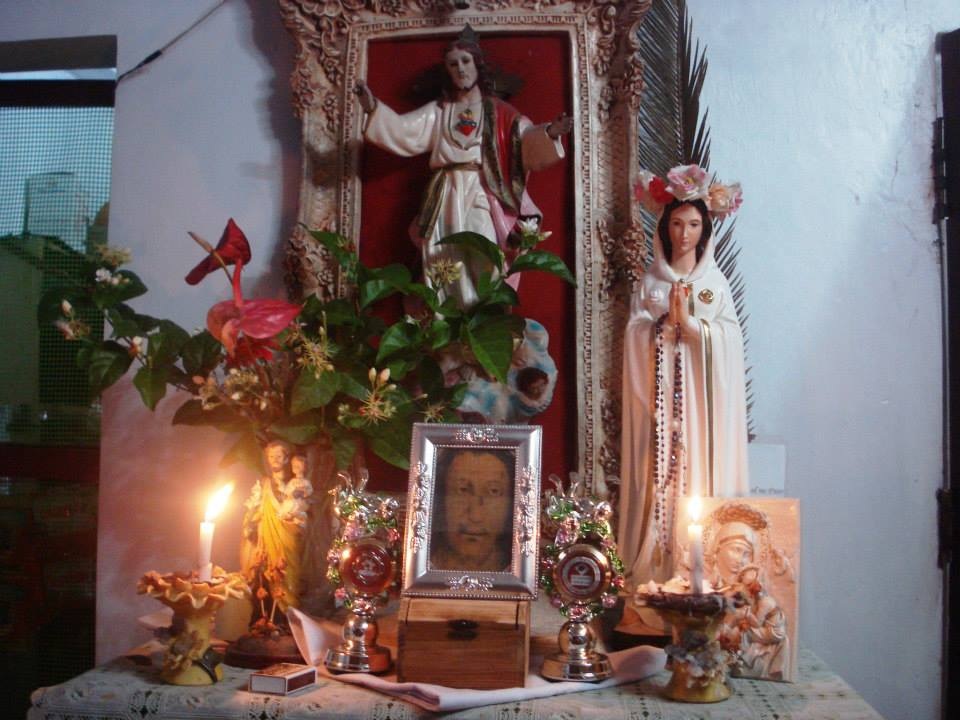
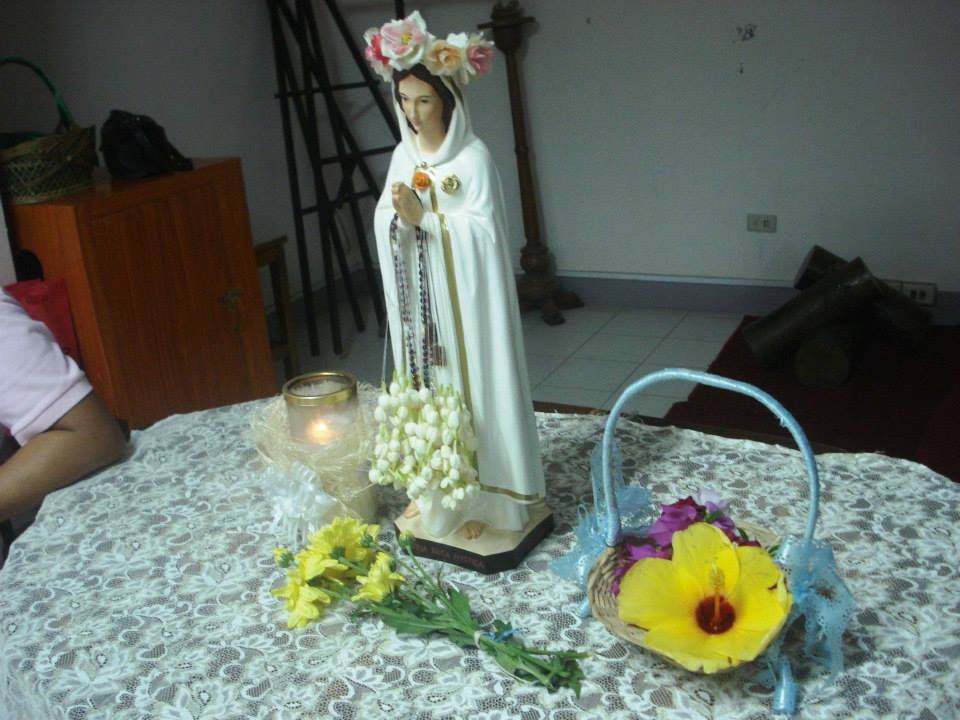
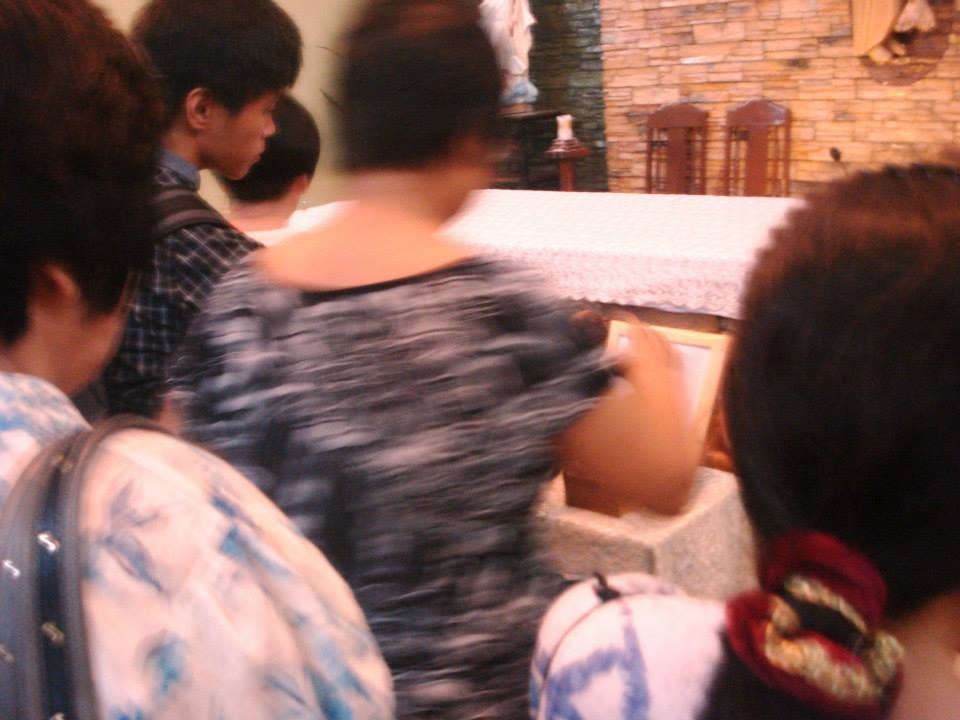
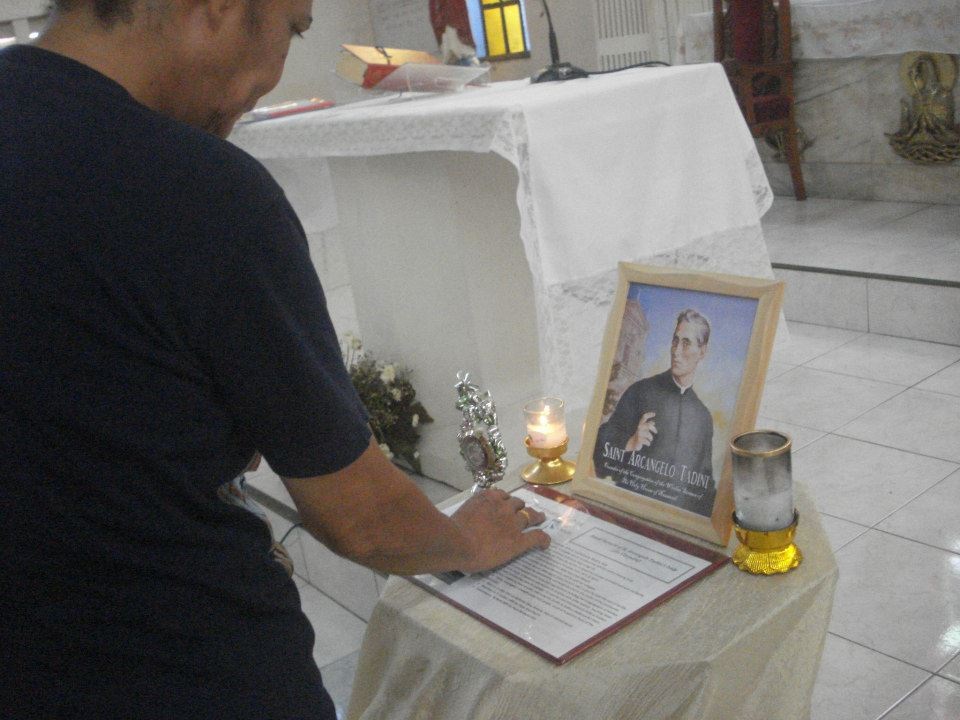
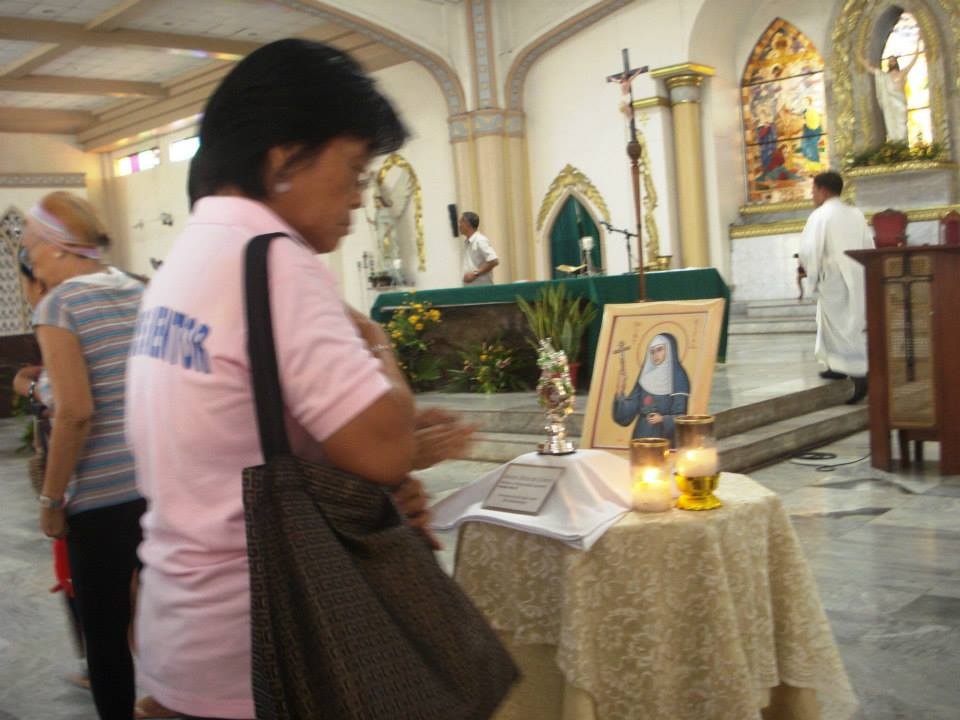
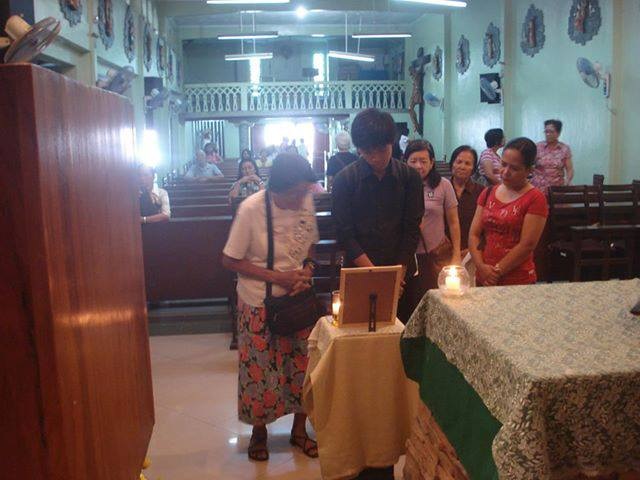
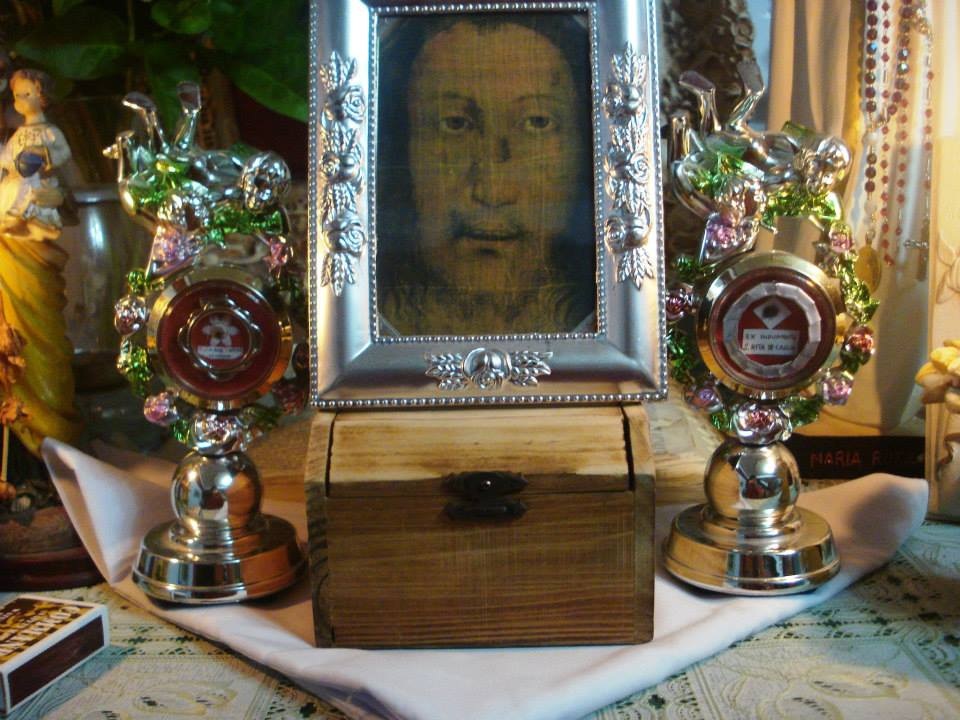
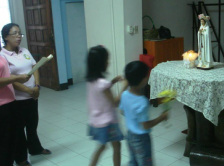
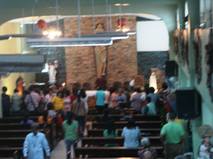
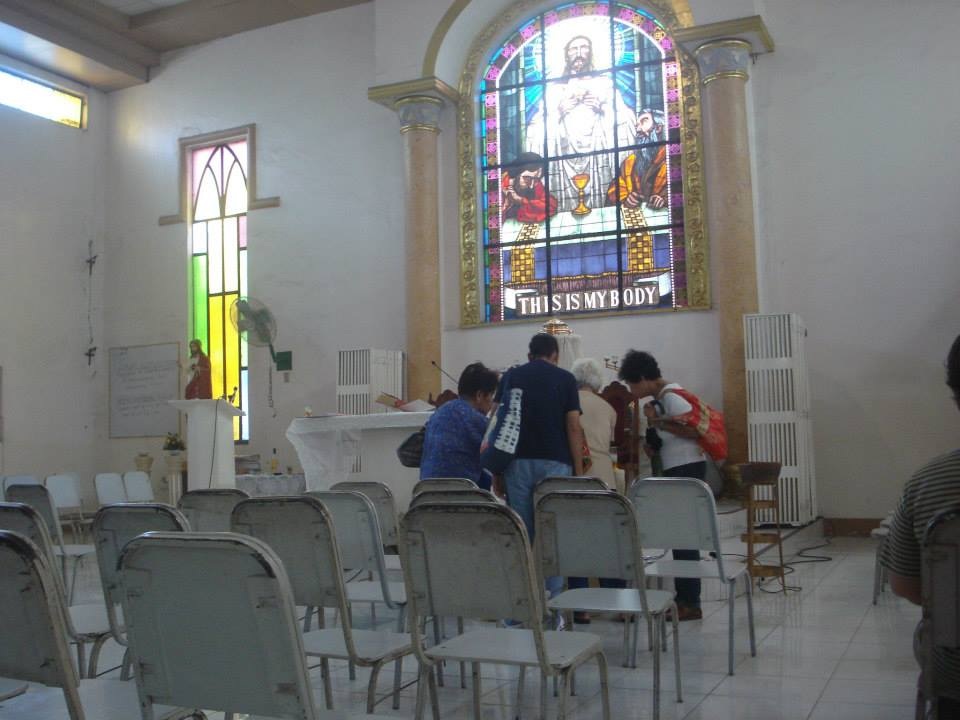
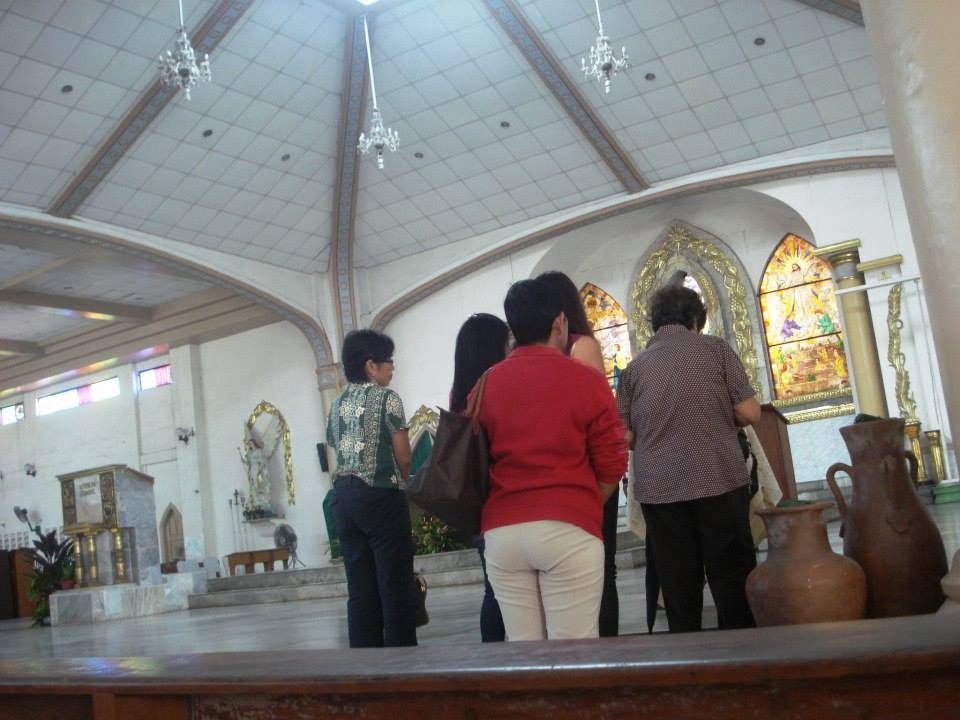
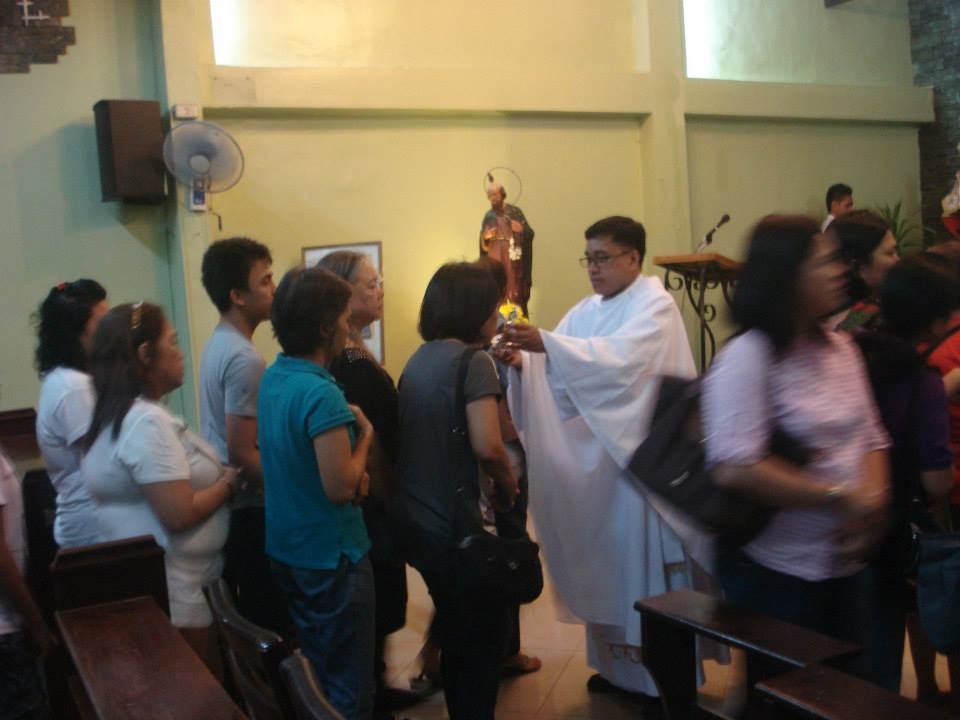
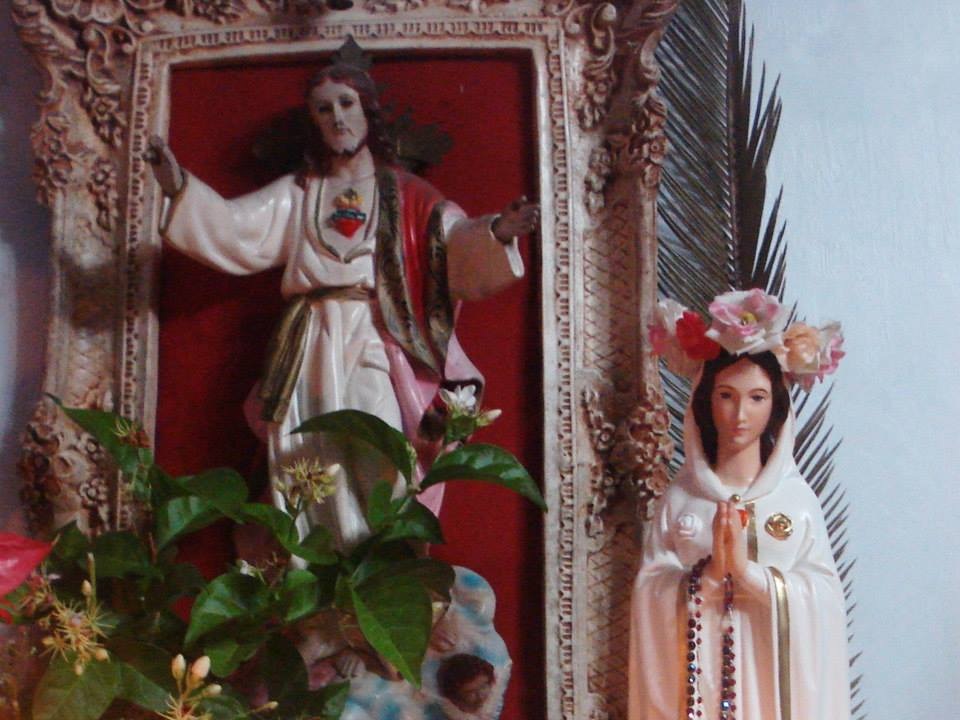
 RSS Feed
RSS Feed
